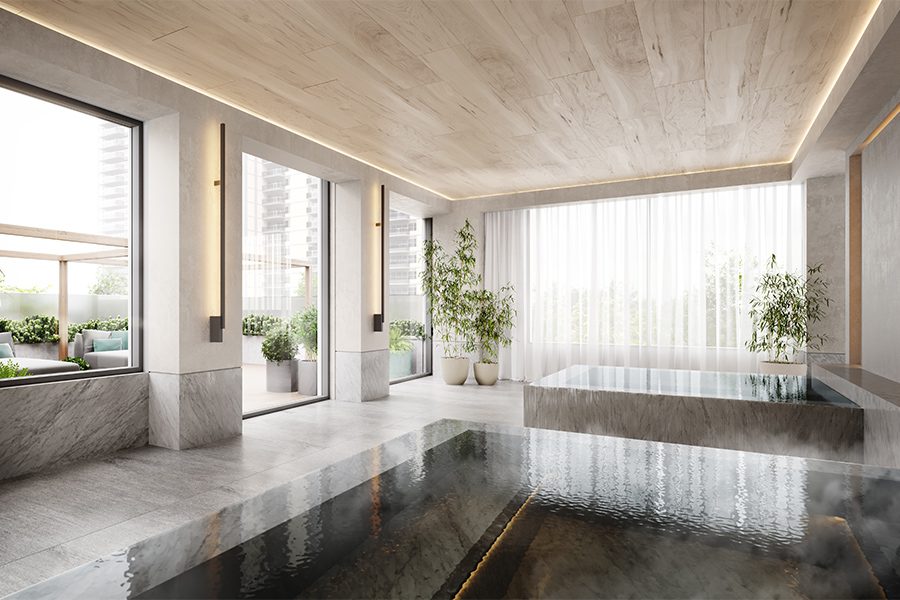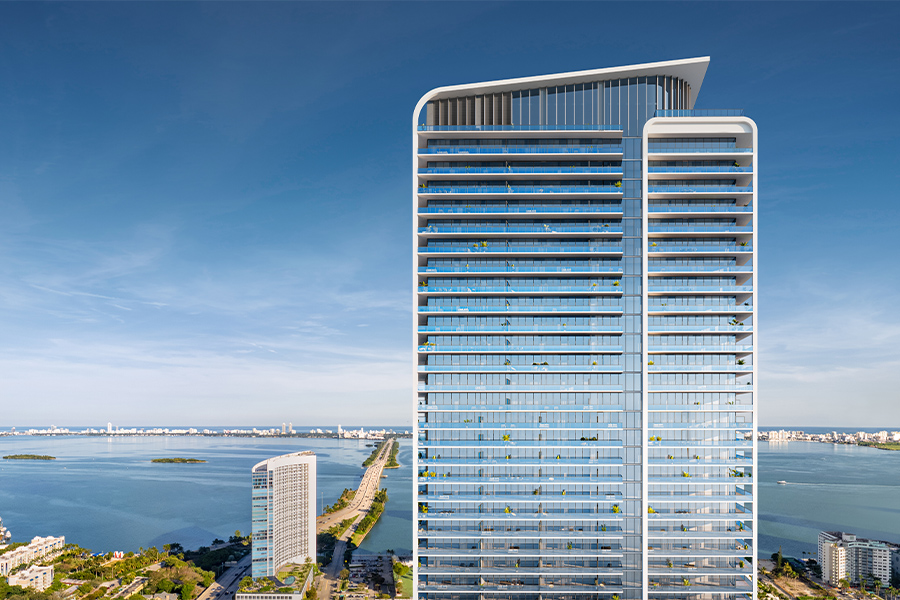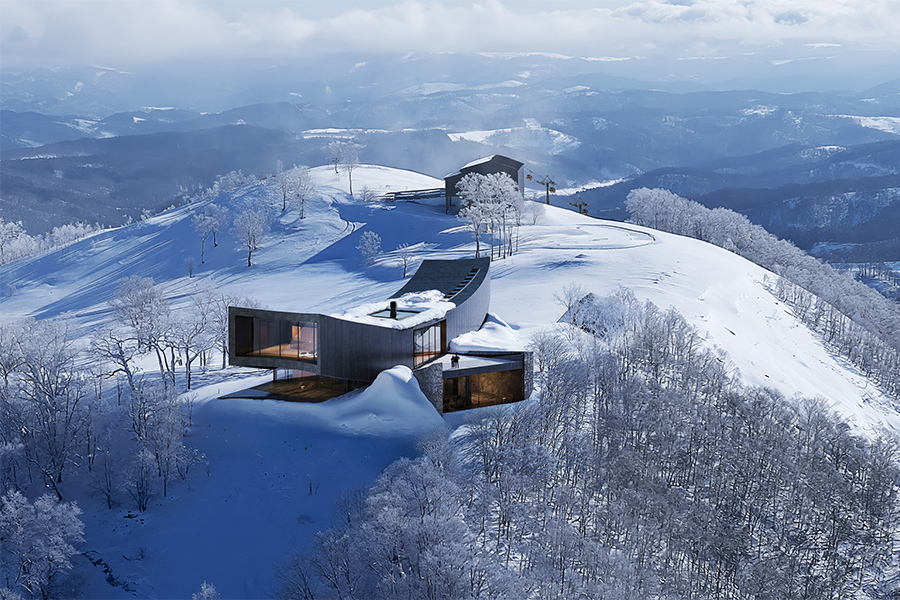It’s no secret that the pandemic impacted the way we live and work. With more people working remotely, homes have become de facto offices, daycares, gyms, and entertainment hubs. In response, high-end multifamily buildings are now chockfull of hospitality-like amenities, courting residents who want everything at their fingertips (and are willing to pay premium prices for it). According to the National Association of Realtors, there are currently more multifamily than single-family units under construction. The U.S., specifically, is building about 50 percent more than the pre-pandemic historical average.
Krista Ninivaggi, principal and interior design lead at Woods Bagot, has worked on multifamily residential design for the past decade and has seen a sea change since the debut of the American Copper Buildings in New York 10 years ago. “We were one of many buildings tipping the scale toward fresh and compelling lifestyle-driven interiors,” she says, crediting the firm’s work in hospitality design with helping them deliver something different to the market. Their latest, the Brooklyn Tower (with a ShoP Architects-designed façade), is the tallest building in the New York borough, reaching 93 stories and 1,066 feet. “The current design ambitions of multifamily buildings are not that different from hotels,” she adds. “Both spaces are warm and welcoming, and as opposed to a hotel being an escape, a residence is a refuge.”

The Brooklyn Tower’s rooftop comprises a 75-foot lap pool, kids pool, whirlpool, and more
Residential buildings—vying for a status as the biggest and best—are sprouting up all over New York and its surrounding areas. Consider the Central Park Tower. Located on Billionaires’ Row, the 1,550-foot-high building is the tallest residential structure in the world and the second tallest in New York behind One World Trade Center. A collaboration between Adrian Smith + Gordon Gill Architecture and Rottet Studio, the penthouse is one of the most expensive in the city, going for $250 million and boasting the highest terrace in the world, soaring 1,460 feet above Manhattan.
Workstead crafted the Olympia in Brooklyn’s Dumbo neighborhood, which comprises a pet spa, bowling alley, playroom, and more; Gachot is lending its expertise to the 17-unit 67 Vestry in Tribeca, slated to open in early 2023 with three full floor units among its offerings; and Fogarty Finger is behind Haus25 in Jersey City, New Jersey and the redesign of Anagram NoMad in Manhattan, where wellness takes centerstage with select apartments offering air purification and water filtration systems that can be accessed through a dedicated app.
Similarly, INC Architecture & Design was involved in two major residences that opened this year, Saint Marks Place in Brooklyn’s Boerum Hill and Manhattan’s Vandewater on the Upper West Side, both of which shine a spotlight on sustainability and wellness practices. Saint Marks Place has an entire amenities floor dedicated to wellness, for instance, and almost every unit has a private outdoor space.

A rendering of the serene spa at AKRA, designed by Chapi Chapo Design
AKRA in Toronto will also focus on residents’ wellbeing when it opens in 2026. Expect herbal and Zen gardens, a lobby lighting system pre-programmed to support healthy circadian rhythms, and a dedicated spa. “Investing in wellness is no longer a nice-to-have, it’s a fundamental feature that guides how people live in a pandemic-influenced world,” says Boris Mathias, founder and partner of local firm Chapi Chapo Design, which is handling the interiors.
Across the pond in London, the importance of community has only intensified since the pandemic. In addition to the Bowler James Brindley-designed, fully electric Arc in Shoreditch from real estate investor and developer Ghelamco, the Dandi Wembley opened its flagship property this fall, centering social events programming and hospitality in the co-living offering. “We embrace the theater of living, striving to elevate our residents’ moods by stimulating each of their senses from the moment they enter the building,” says Dandi founder and CEO Ali Ravanshad. “Central to our ethos is the delivery of homes in which people can enjoy their personal space while being part of something bigger—a community that interacts in a range of elegant, shared spaces.”
This article originally appeared in HD’s December 2022 issue.










